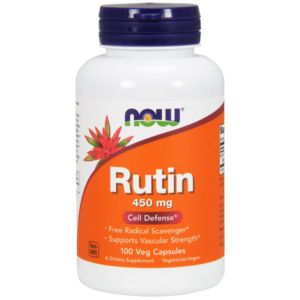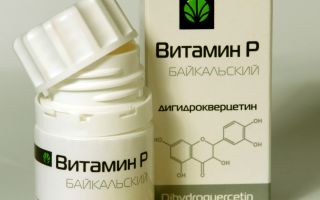Content
The human body cannot be imagined without capillaries - the thinnest vessels that supply all body tissues with vital substances and oxygen. With age, they perform their functions less and less - that is why the body needs vitamin P to maintain the required thickness of the walls of blood vessels, strengthen them, maintain elasticity and, what is important, prevent sclerotic lesions.
What does the body need vitamin P for?
For the first time, scientists began to study the effect of vitamin P on the human body as a whole and blood vessels in the twentieth century - then the Hungarian biochemist managed to obtain a special substance from lemon, which perfectly fought the fragility and permeability of capillaries. It normalizes blood pressure, has a pronounced anti-inflammatory and choleretic effect, helps in the fight against malignant neoplasms, in particular, with leukemia and breast cancer, heals ulcers, allergies, improves thyroid function, and stimulates the adrenal glands. Accelerates healing, prevents the appearance of bruises and swelling in minor injuries, removes the red vascular network on the whites of the eyes. By expanding blood vessels, it normalizes blood supply, cleansing them of harmful cholesterol plaques.
What foods contain vitamin P
The human body does not produce vitamin P - it comes inside with food or as part of multivitamin complexes. Vitamin P, also known as rutin or C-complex, contains exclusively plant products - greens, vegetables and fruits, buckwheat, green tea. Rutin consists of many useful substances, including flavonals, hesperdin, quercetin, kakhetins and citrine - it is they that give citrus fruits a sunny yellow and orange color, as well as a special taste and pronounced aroma.
Apples, onions, peppers (hot and Bulgarian), citrus fruits, apricots, tomatoes, cherries, raspberries, lettuce, and grapes will help fill the lack of routine. There is a lot of routine in blackberries, black currants, mountain ash and rose hips, herbs (dill, parsley, basil), coffee, wine, beer and freshly squeezed juices.
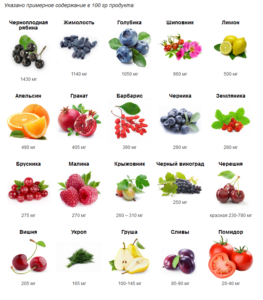
In combination with vitamin C, rutin stimulates the immune system, as a result of which the body resists viruses and infections much better. But under the influence of too high or low temperatures, fresh vegetables and fruits lose nutrients, so they need to be eaten exclusively raw. In addition to plant foods, the body also receives rutin from salted fish (for example, herring) and caviar.
Daily Value of Vitamin P
There is no hard-and-fast intake of routine - doctors usually prescribe 25 mg of the drug per day to patients. If a person leads an active lifestyle, the daily intake of vitamin P rises to 60-100 mg, for a child's body it should not exceed 150 mg.
To remove the bleeding of the gums, as well as in the treatment of oncology and diseases caused by a too thin capillary membrane, the daily intake of vitamin P rises to 100-200 mg.
Overdose is extremely rare in people taking vitamin P - as a rule, excess rutin leaves the body naturally. Too large doses of synthetic vitamins are fraught with indigestion, nausea and dizziness.
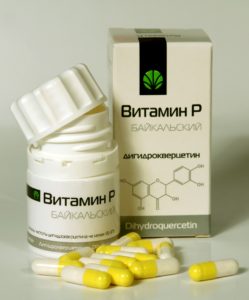
Conditions under which vitamin P is absorbed
The benefits of bioflavonoids can hardly be overestimated - once they enter the body, they quickly penetrate the bloodstream, which delivers useful substances to all tissues and organs.
The human body absorbs rutin best of all in combination with vitamin C - they can be taken in combination or consumed foods rich in ascorbic acid (cabbage, oranges, parsley, sea buckthorn tea). Thanks to the interaction of these two incredibly useful components, the walls of blood vessels will quickly become stronger and healthier, moreover, this combination prevents the appearance of clots and blood clots. Without routine, vitamin C quickly loses its beneficial properties, being destroyed in the body under the influence of oxidative processes.
Like rutin, ascorbic acid is involved in many vital processes - thanks to it, the body burns fats faster, produces the amino acid tyrosine, collagen and other proteins of connective tissues, and ensures the conversion of folic acid into folic acid.
Vitamins P and C obtained by the body in their natural form stimulate the production and assimilation of hyaluronic acid, which literally "cements" vascular cells, making them incredibly strong and stable. In turn, hyaluronic acid is necessary for the body for the normal functioning of the nervous system, restoration of the epithelium and all connective tissues. A sufficient amount of it in the body improves the condition of the skin, increases the mobility of joints, increases the elasticity of the walls of blood vessels.
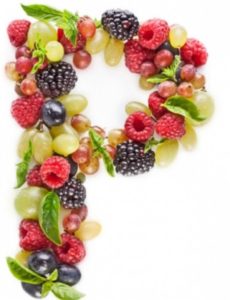
Vitamin P deficiency symptoms
Internal organs suffer from a lack of vitamin P, and only then external signs of vitamin deficiency appear. Too thin capillaries provoke vascular diseases, while walking, a person begins to experience pain in the legs, shoulder girdle, even with the slightest physical exertion, the body experiences severe fatigue.
Signs of vitamin P deficiency, or rather acute vitamin P deficiency, are nosebleeds, inflamed gums, dark spots on the skin and falling hair.
The need for routine increases significantly in cases when the body is exposed to ionizing radiation, with prolonged use of anticoagulants, difficult working conditions in a hot, stuffy room, active sports, measles, scarlet fever, rheumatism, poisoning with chemicals containing lead or chloroform.
Indications for the use of vitamin P
Patients with P vitamins are prescribed for swelling caused by inflammation of the inner ear, dizziness, bleeding gums - if bleeding appears in the mouth when brushing teeth, the solution to the problem will be a course of routine in tablets. It is also indicated as a prophylactic agent for allergic reactions, viral and infectious diseases of the body. Rutin lowers eye pressure, improves vision, prevents the development of varicose veins and atherosclerosis.
Most often, the body experiences a lack of routine in winter - ready-made preparations, which are produced in the form of tablets, capsules in a gelatin shell, dragees, syrups and powders, will help to eliminate vitamin deficiency at this time.
How to take vitamin P
Ascorutin will help to fill the lack of vitamin P - the drug known to many since childhood contains rutin and vitamin C in equal proportions.The drug lowers blood pressure, relieves swelling, reduces pain and cramps.
Ascorutin is prescribed for pronounced symptoms of vitamin P deficiency - often the remedy is part of a complex therapy aimed at treating diseases of the body associated with high permeability of the vascular walls. Ascorutin supports immunity, it is effective in the treatment of influenza and SARS.
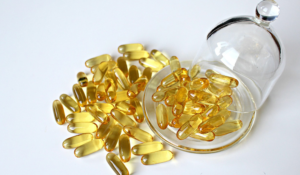
Preparations based on vitamin P and ascorbic acid are contraindicated for allergies and individual intolerance to the body, increased blood clotting, low levels of potassium and a large amount of calcium in it, a tendency to form blood clots, urolithiasis, gout, severe renal failure, intestinal inflammation and diabetes mellitus.
Pregnant and lactating mothers should take vitamin P-based preparations under the strict supervision of a doctor - it is categorically not recommended to do this in the first trimester, otherwise you can harm the body, in which there are already too many changes. The rest of the time, the daily rate should not exceed 60-80 mg.
Conclusion
Vitamin P is needed by the body to strengthen blood vessels - in general, its lack significantly affects important processes in the human body. But too much routine will cause the body much more harm than good - to maintain a reasonable balance, you need to strictly follow the doctor's recommendations.
